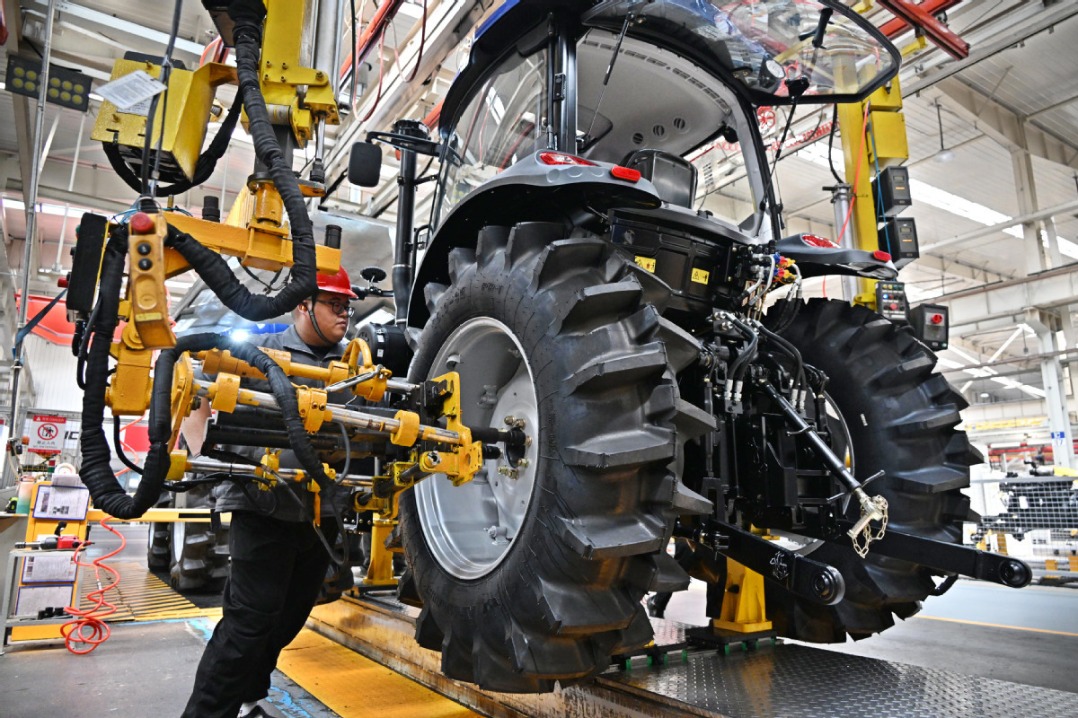Optimized real estate policies benefit millions

A senior housing official in China said on Friday that by the end of last year, the per capita housing construction area in urban areas in China exceeded 40 square meters.
Ni Hong, minister of housing and urban-rural development, announced the data at a news conference held by the State Council Information Office in Beijing.
He said the ministry has continuously optimized real estate policies, improved the housing security system and strived to ensure that all people have access to housing.
Ni noted that by the end of 2023, more than 64 million sets of various types of government-subsidized housing and shantytown renovation housing have been built nationwide, benefiting over 150 million people.
The ministry also focused on the renovation of old residential communities in urban areas and accelerated the construction of urban infrastructure last year.
Meanwhile, the urban built-up area has reached 64,000 square kilometers, Ni said, stressing that the urbanization rate of the permanent resident population has reached 66.16 percent, meaning that over 930 million people live in urban areas.
"Urban functions are continuously improving and the urban living environment is steadily getting better," the minister said. "More than 250,000 old residential communities in urban areas have been renovated last year, benefiting over 44 million households or approximately 110 million people."
He also noted that efforts are being made to promote the industrialization, digitalization and green transformation of the construction industry, contributing to economic development.
Besides, the total output value of the construction industry reached 31.6 trillion yuan ($4.4 trillion) last year, providing jobs for over 50 million people, Ni said, emphasizing that the priority of the Chinese modernization is people's livelihood.
In the next phase, the ministry will focus on ensuring that people have access to green, low-carbon, intelligent and safe housing, and accelerating the development of a new model for the real estate industry, the minister said.
During the news conference, the ministry also outlined the key priorities for this year's work.
Qin Haixiang, vice-minister of housing and urban-rural development, said that the ministry plans to renovate over 50,000 old residential communities.
The main task is to address issues such as the installation of elevators, parking and charging facilities, he said. "On this basis, efforts will be made to promote the renewal and renovation of old streets and factory areas."
In addition, the construction of urban underground pipelines will be another key focus this year, the official said, noting that the goal is to upgrade more than 100,000 kilometers of various aging pipelines.
At the same time, the ministry will utilize digital tools to monitor municipal facilities such as water supply, drainage, gas and bridges in real-time.
This will help in the early detection, early warning and early handling of safety hazards, thereby ensuring the safe operation of cities, Qin said.
Efforts to address urban waterlogging will also be strengthened.
"This year, we aim to complete the renovation of over 1,000 waterlogging-prone spots in 100 cities, while accelerating the construction of urban drainage and waterlogging prevention systems," said the official.




































